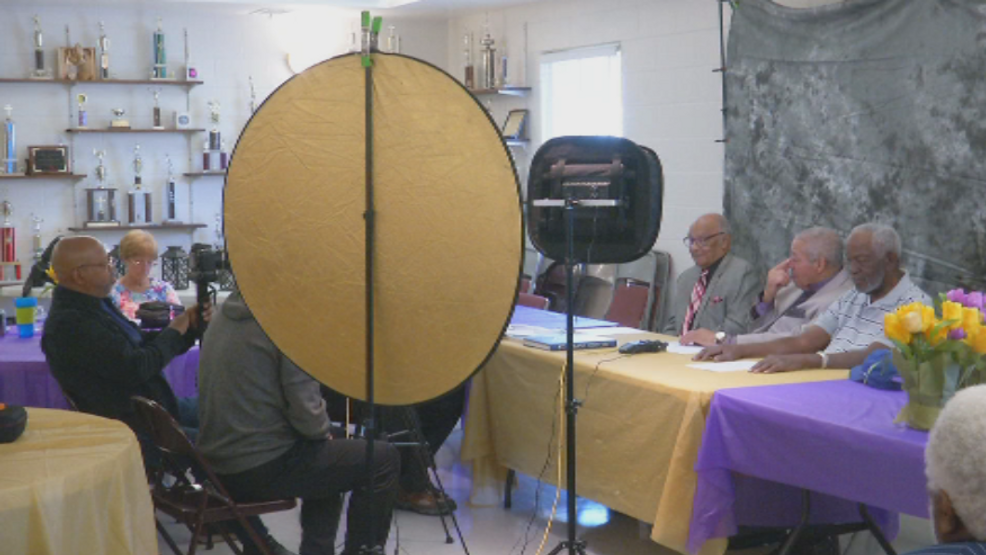
ST. ALBANS, W.Va. (WCHS) — If you would have walked into the St. Paul Baptist Church on Sunday afternoon, you would have heard three men share stories from when they played on the Amandaville Junior Gray baseball team. The team was made up of all African Americans, except one white player.
The Special Collections Department at Marshall University came to St. Albans on Sunday to capture the players’ stories to create a documentary series on the team in an effort to preserve its history.
“We’re collecting their stories and histories so we can have a better understanding of how those events shaped the community businesses as well as society at large,” Marshall University Associate Professor of Management Dr. Ralph McKinney said. “What our hope is to take these histories and create a collection at Marshall University Special Collections section that allows us to… share those freely to other people, to other communities not just in West Virginia but throughout the country.”
Don Epps is one of the five surviving players from the team. He shared stories alongside Sonny Smith and Ralph Dudley.
“We’re old guys now,” Epps told Eyewitness News. “We’re all in our 80s, late 80s. We had fun together, and we have fun now. We all sing in the choir together and everything.”
The Amandaville Junior Grays played in the 1950s during a time of segregation and played interracial games.
Epps said it is important for African American history and the history of the Amandaville Junior Grays to be preserved. He hopes people take away a few things from the finished documentary.
“A historical reference on basically some of the things that were said during the interview about the way life was for blacks versus whites then,” Epps said. “Also, the way it was intermingling… and that people would be able to understand there’s been changes but the more they change sometimes things still stay the same.”
Marshall University’s Special Collections department creates documentaries and posts them online for people across the nation to learn from.
“The culture and the knowledge of that culture has been lost, because it’s not recorded,” Director for the Center of Economic and Community Development Black Appalachia Dr. Allen Letton said. “In today’s world I think we have to go that extra mile to make sure that gets captured, make sure we understand the elements of that and use that to kind of bring back those communities and really the nature and the vibrance of that community. That’s really what we want to try to do and this is a step in doing that.”
As for Epps, he is appreciative the Amandaville Junior Grays will live on.
“I’m just appreciative that enough interest is shown to be able to do this, because other people will see and maybe they’ll understand that maybe this needs to be done further, not just black history but history itself.”
The Special Collections department told Eyewitness News the goal is to have the documentary released within a month.

